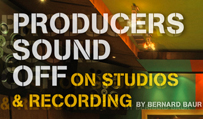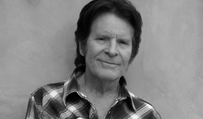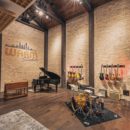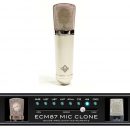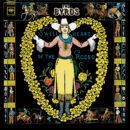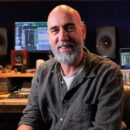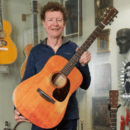IF THERE IS ONE INDIVIDUAL WHO USES RECORDING STUDIOS THE MOST, it is the producer. Producers often oversee multiple projects over the span of a year and, as a result, have a wide range of experience with a variety of studios. With that in mind, Music Connection contacted five active and renowned producers. We asked them what they look for in a studio, what recording methods they prefer and what artists can do to find the right person to helm their projects.
By Bernard Baur
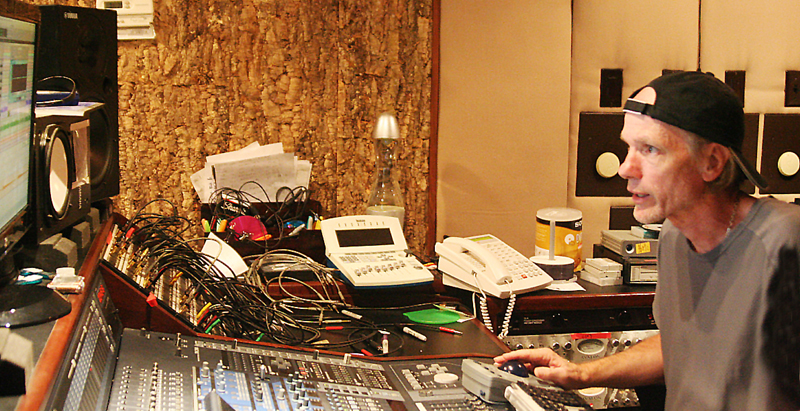
MICHAEL LLOYD
Michael Lloyd Productions
http://twitter.com/michaellloydsr
In a career that spans five decades, Michael Lloyd has earned hundreds of gold and platinum records. In fact, Lloyd’s productions have charted in every decade since his start in the 1960s. His recordings range from pop and rock to country, R&B, jazz and gospel. Additionally, he has provided scoring, music supervision and music production for 13 television specials, 16 TV movies, 35 TV series and well over 100 motion pictures, including Dirty Dancing––which is the all time best- selling multi-artist soundtrack. His production roster is packed with remarkable artists, such as Lou Rawls, Barry Manilow, Kimberley Locke, Natalie Grant, Stryper, Jennifer Warnes, the Righteous Brothers, the Monkees, the Burrito Brothers, Donny & Marie, Roger Williams, Debby Boone, Frank Sinatra, the Supremes and even Kim Fowley, among a long list of others.
CHOOSING A STUDIO
I like to know the history of a studio––what they’ve recorded and what artists recorded there. That way, at least I can determine a “quantifiable sound” a particular studio produces and the vibe I can expect from the facility. You might not make a record as great as some of the superstar acts that recorded there, but at least you know you’ll get “that sound.” That’s why it’s a shame that some of the great studios have closed. But, there are still a lot to choose from today.
RECORDING METHODS
I like the sound you get when you set up the old-fashioned way—where all of the musicians are in the same room. Sure, you might get some bleed from the other instruments, but that sound is classic. Setting up like that also raises the energy level for everyone involved. You need a good-size live room to do it and, unfortunately, there aren’t a lot of them left. Many studios today, especially in Nashville, separate and isolate the players. That will get you a cleaner sound, but you also lose some of the magic.
DOES NEW TECHNOLOGY HELP OR HURT THE RECORDING PROCESS
It can do both. If you get caught up in it, it takes away spontaneity. You could also make a mediocre artist sound great, which I think is a disservice to everyone. Alternatively, you can get very creative and discover things later on that you may have overlooked. But, ultimately, music fans want to hear the magic of artistry. And all the bells and whistles in the world won’t create that––the artist has to have “it,” and the producer has to capture it.
SHOULD YOU MIX FOR A DIGITAL WORLD
We all know that today many people listen to music on iPhones, iPods or other mobile devices. But the listening experience hasn’t really changed. People want to hear something fantastic. Some digital formats can squeeze the dynamics out of a production, but if it’s recorded and mixed right it won’t harm the listening experience. Besides, at the end of the day, I don’t think the consumer cares as long as the songs and artists are great.
HOW SHOULD AN ARTIST CHOOSE A PRODUCER
They should choose a producer who really understands them, gets them and doesn’t want to change them. The producer and artist need to be on the same path to achieve a mutual goal, i.e. the best way to represent the artist’s music and skills. And, most importantly, everyone should treat everyone else with respect.

